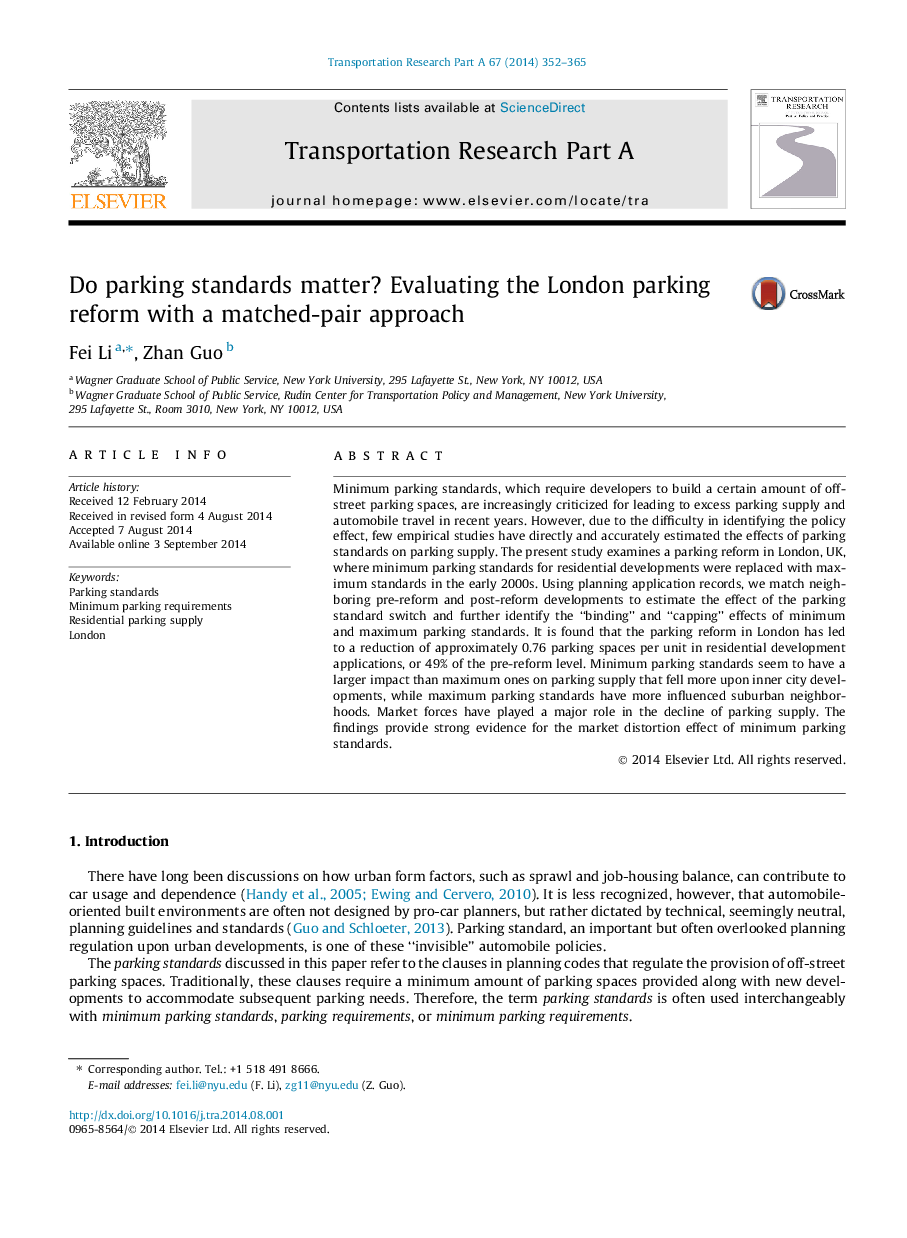| Article ID | Journal | Published Year | Pages | File Type |
|---|---|---|---|---|
| 6781774 | Transportation Research Part A: Policy and Practice | 2014 | 14 Pages |
Abstract
Minimum parking standards, which require developers to build a certain amount of off-street parking spaces, are increasingly criticized for leading to excess parking supply and automobile travel in recent years. However, due to the difficulty in identifying the policy effect, few empirical studies have directly and accurately estimated the effects of parking standards on parking supply. The present study examines a parking reform in London, UK, where minimum parking standards for residential developments were replaced with maximum standards in the early 2000s. Using planning application records, we match neighboring pre-reform and post-reform developments to estimate the effect of the parking standard switch and further identify the “binding” and “capping” effects of minimum and maximum parking standards. It is found that the parking reform in London has led to a reduction of approximately 0.76 parking spaces per unit in residential development applications, or 49% of the pre-reform level. Minimum parking standards seem to have a larger impact than maximum ones on parking supply that fell more upon inner city developments, while maximum parking standards have more influenced suburban neighborhoods. Market forces have played a major role in the decline of parking supply. The findings provide strong evidence for the market distortion effect of minimum parking standards.
Keywords
Related Topics
Physical Sciences and Engineering
Engineering
Civil and Structural Engineering
Authors
Fei Li, Zhan Guo,
